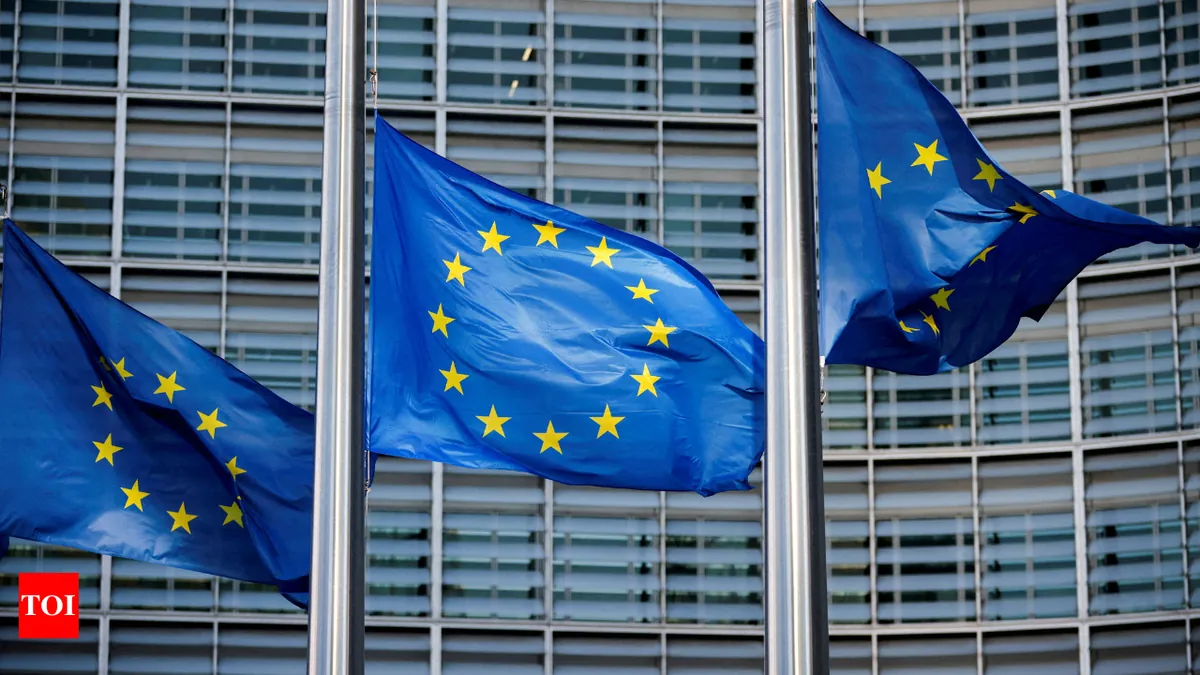EU's Economic Decline: A Crisis of Competitiveness and Innovation
Europe faces severe economic stagnation and technological lag. EU's global GDP share plummets as strict regulations hinder innovation. Draghi's report calls for massive investment, but political obstacles loom large.

The European Union is grappling with a profound crisis of competitiveness and innovation, as its share of global GDP has plummeted from 26.5% in 1990 to a mere 16.1% today. This stark decline has sparked intense concern among European leaders and policymakers.
At a recent gathering of European elites at the Ambrosetti forum, Giorgia Meloni, Italy's prime minister, highlighted the EU's predicament: "America innovates, China replicates, Europe regulates." This succinct observation encapsulates the challenges facing the 27-member bloc.
The EU's approach to artificial intelligence (AI) regulation exemplifies this issue. The AI Act, implemented in August 2024, has been criticized for its restrictive nature. Industry leaders argue that this legislation, rooted in the "precautionary principle," is stifling innovation and driving talent away from Europe.

A report by Mario Draghi, former president of the European Central Bank, underscores the severity of the situation. Draghi calls for an ambitious investment program of up to €800 billion annually to bridge the digital divide and productivity gap with the United States. This proposed investment would be twice the scale of the post-World War II Marshall Plan.
Key findings from Draghi's report include:
- EU disposable income per capita has grown at half the pace of the US since 2000.
- Europe failed to capitalize on the first digital revolution in the mid-1990s.
- In software and internet sectors, EU firms represent only 7% of R&D, compared to 71% for the US and 15% for China.
- The EU is home to only four of the 50 largest digital marketplaces worldwide.
The automotive industry, once a cornerstone of European innovation, now lags behind global competitors. Chinese carmakers are reportedly "one generation ahead" in electric vehicle technology, autonomous driving, and development time.
"Europe is stuck in a static industrial structure with few new companies rising up to disrupt existing industries or develop new growth engines."
However, implementing Draghi's recommendations faces significant political hurdles. The proposal for joint eurobonds to fund the investment program has met resistance from fiscally conservative member states, particularly Germany and the Netherlands.
Christian Lindner, German finance minister, stated unequivocally: "Germany will not agree to this. There must be no further blurring of member states' responsibility for their own budgets."
The EU's challenges extend beyond economic policy. The bloc's regulatory approach has been criticized for hampering business growth. Fredrik Persson, head of BusinessEurope, noted that 850 new regulations have been imposed on European companies in the past five years alone.
As the EU grapples with these issues, some question whether the project of ever-closer union is the right path forward. The coincidence of Europe's decline with the launch of monetary union and subsequent treaty expansions has led to debates about the fundamental structure of the EU itself.
The coming years will be crucial for the European Union as it seeks to address its competitiveness crisis while navigating political divisions and structural challenges. The bloc's ability to adapt and innovate will determine its place in the rapidly evolving global economy.


































